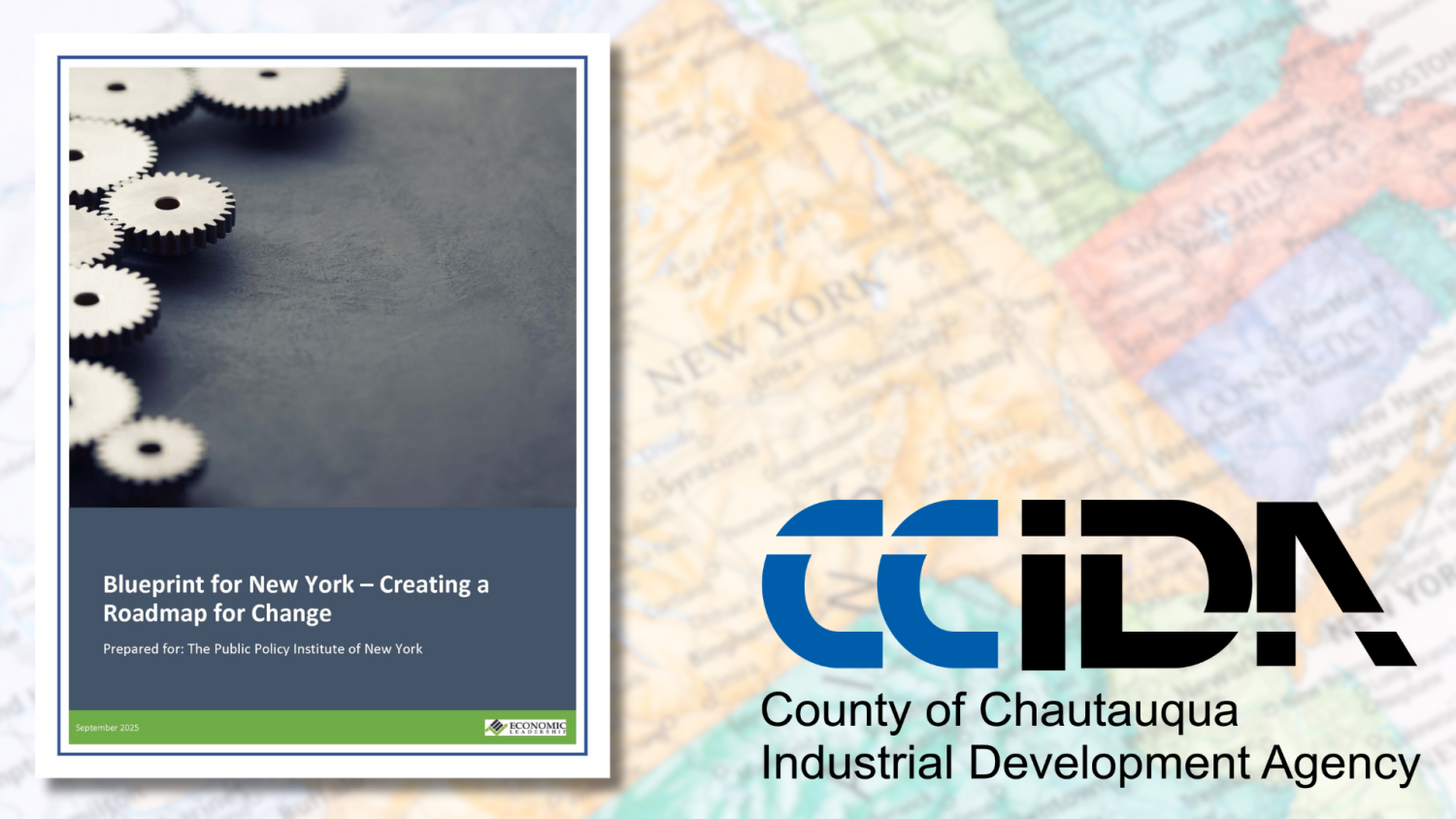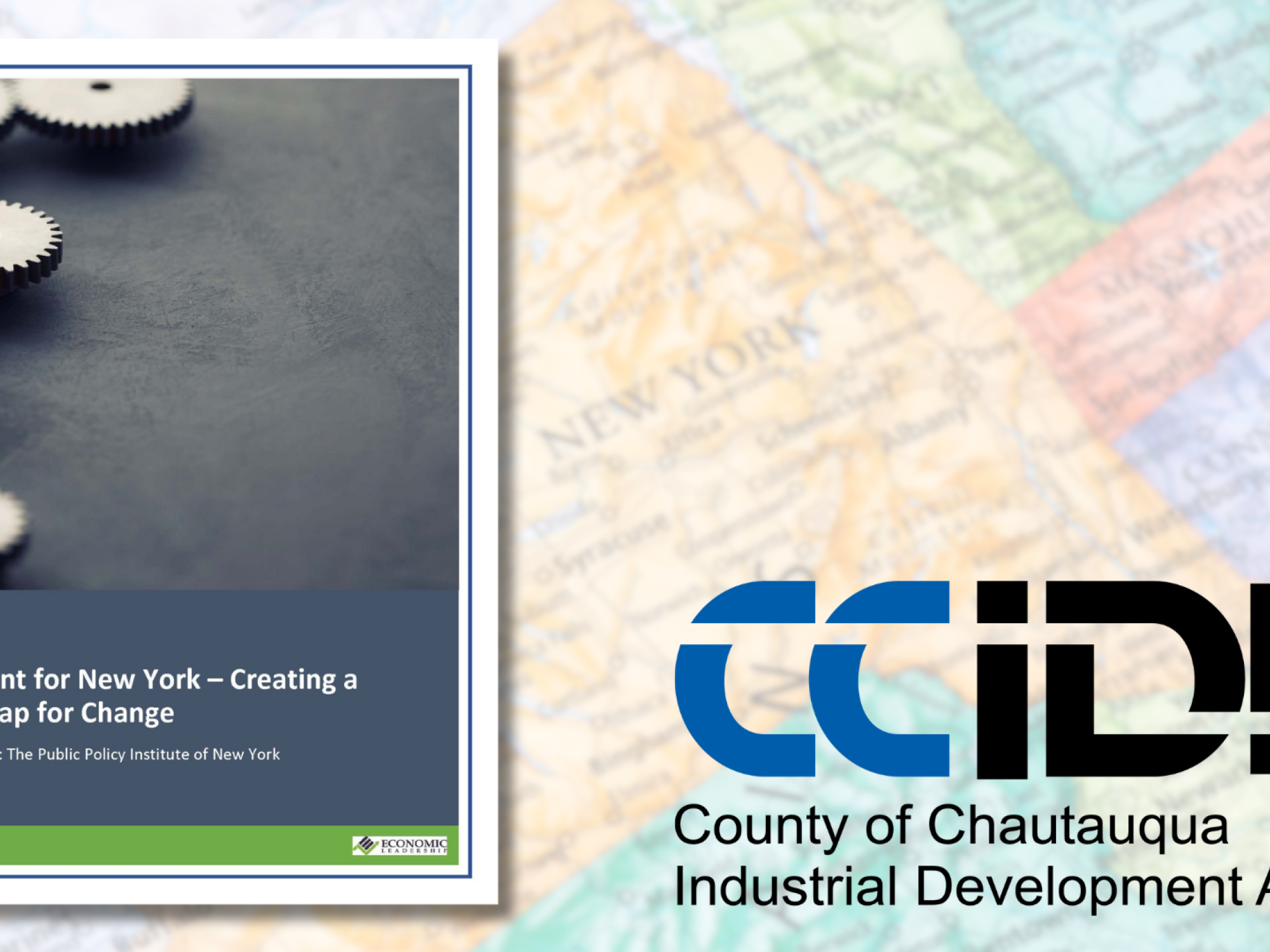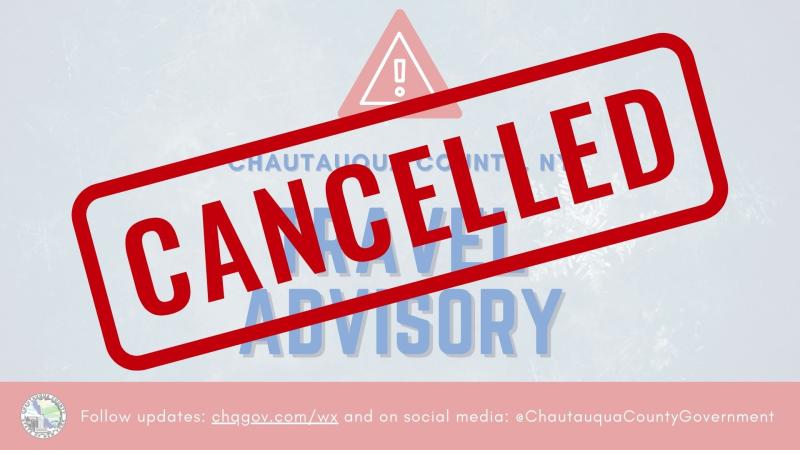
CHAUTAUQUA COUNTY, N.Y. -- A recently released report is reaffirming the position by local leaders that a number of outside factors are inhibiting economic development across New York State, including Chautauqua County.
In September, the Public Policy Institute of New York State, an affiliate of The Business Council of New York State, along with the New York State Economic Development Council (NYSEDC), released a report entitled “Blueprint for New York – Creating a Roadmap for Change.” The report was commissioned to explore what was driving New York to the bottom of every major business category, and what needs to be done to stop what the authors are calling an “economic freefall” that is being documented day-after-day.
More than 550 economic development officials and business leaders from across New York were surveyed as part of the report. The responses of the survey overwhelmingly point to high taxes, excessive regulations, and the overall cost of doing business in New York as the primary barriers to growth. Business leaders noted that they struggle with labor costs, compliance burdens, and government inefficiencies that make it difficult to compete with other states. Housing shortages, workforce availability, and infrastructure challenges also hinder economic expansion. Many respondents highlight capital access issues, slow state funding disbursement, and excessive red tape that delay projects and discourage investment. Additionally, crime, population decline, and the outmigration of businesses and workers are seen as critical issues impacting New York’s economic future.
The Blueprint report also indicates that jobs in New York have grown by only 7.3% during the past decade. This is underperforming when compared to the national average of 12%. It is especially subpar when compared to other states of similar size, including Florida (24.9%), and Texas (20.3%).
Even as the overall job growth rate for the state saw a minimal increase, data from the U.S. Department of Labor indicates that more than half of all New York counties (35 in all) saw job totals decrease from 2014 to 2024. Furthermore, the total rate of job loss in New York’s seven Southern Tier counties was 6.3%, and the total rate of job loss in seven of the eight Western New York counties (excluding Erie County, the most populous county in Upstate New York) was 6.6%. By Comparison, Chautauqua County’s job loss rate during the same time period was 5.9%.
“This data clearly indicates that the loss of residents and jobs in Chautauqua County isn’t the result of local leadership or a lack of effort by our economic development team. Instead, it’s a clear indication that the overall business climate in New York State is not conducive to building business, gaining jobs, and growing our local and regional economies. If anything, it’s the complete opposite,” said Paul “PJ” Wendel, Chautauqua County Executive.
“It’s reaffirming to have this new report validate what we’ve known and have been saying for quite some time: no matter how hard we try locally, there are numerous outside factors that impact and hinder our economic and business development efforts here in Chautauqua County,” added Mark Geise, Deputy County Executive for Economic Development and CEO of the County of Chautauqua Industrial Development Agency. “In spite of this, our economic development team remains committed to rising up to face these challenges.”
The report pointed out a number of statistics that help to verify the lack of business development and growth across the state. From 2014 to 2024, corporate management jobs grew by only 2.8%, compared to the national average of 19.7%. The report also found that New York has over 300,000 regulations on the books, second only to California, creating a difficult and time-consuming maze for businesses to navigate. The state also leads the nation in new legislation introduced with over 24,000 bills introduced in 2023-2024, five times the national average and double the next closest state.
The survey portion of the report, which involved hundreds of business owners and economic development leaders participating, found that only 2% of business owners feel lawmakers represented their interests in Albany and only 3% feel lawmakers and state regulators understand and support their business. Overall, 72% of businesses do not see the current economic conditions of New York as good.
The consensus was that New York needed to make immediate improvements around laws and regulations to make the state more business friendly and also address the high cost of doing business due to taxation as well as antiquated policies. The report also indicated that the business community wants to see improvements in state agency coordination, work to reverse population loss, and place a greater emphasis on addressing energy issues.
The Business Council of New York State and the New York State Economic Development Council are calling on lawmakers to act immediately to implement several recommendations to improve the State’s economic climate.
“What was made clear to us as we traveled the state and spoke to business owners, leaders and organizations is this: rather than being treated as a partner or lifted up by government, businesses feel dragged down by high costs and excessive regulations,” said Ryan Silva, NYSEDC Executive Director.
To read the full “Blueprint for New York” report, visit PPINYS.org.
About CCIDA - The CCIDA is an economic development organization authorized and empowered by the State of New York to make Chautauqua County a better place to work, live, and visit. It facilitates development by attracting new businesses, while promoting the retention and expansion of existing businesses. Assistance in the form of incentives – tax abatements, low interest loans, and bond financing – enhances the opportunities for job creation and retention by our businesses. For more information visit ChooseCHQ.com.








